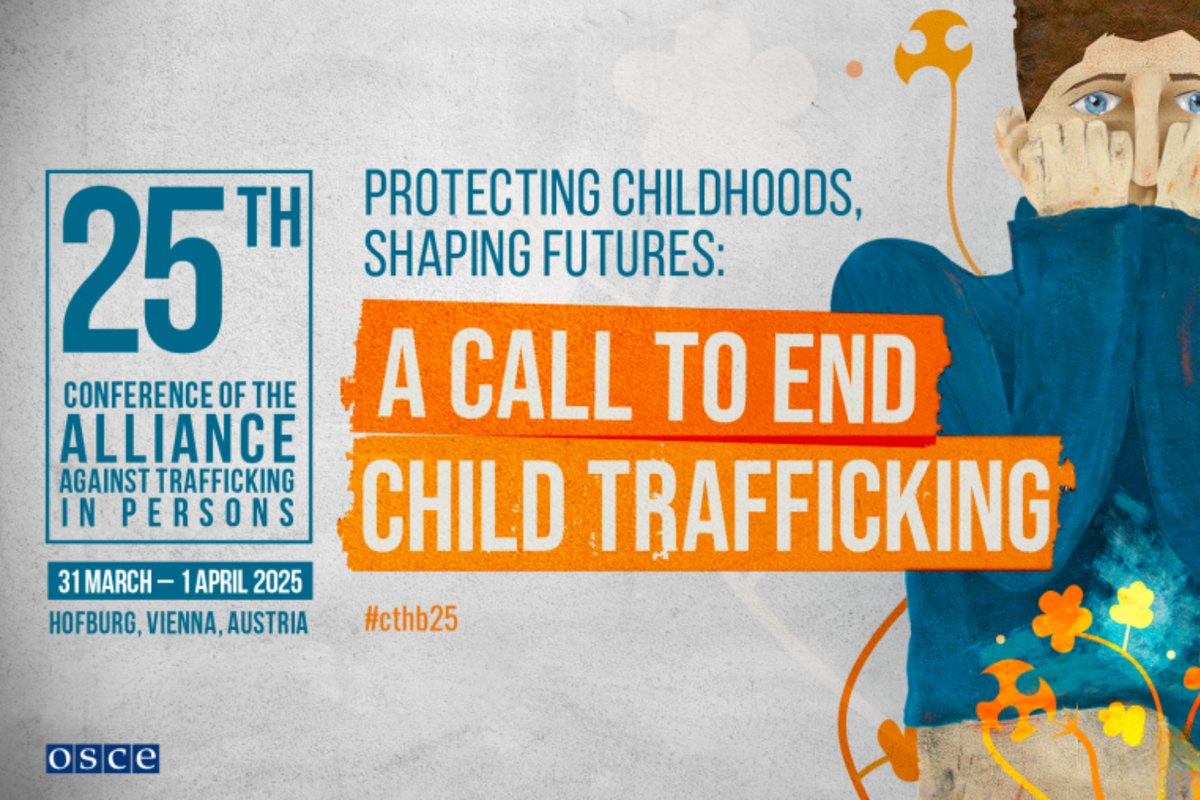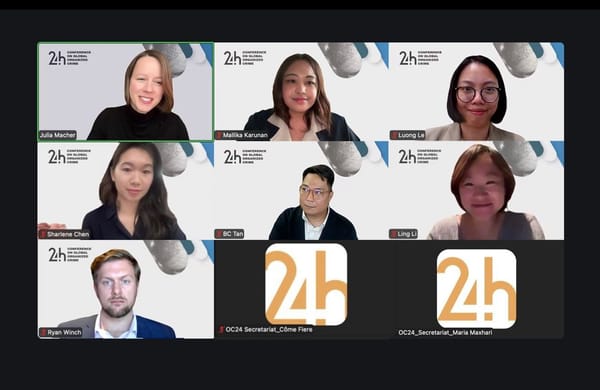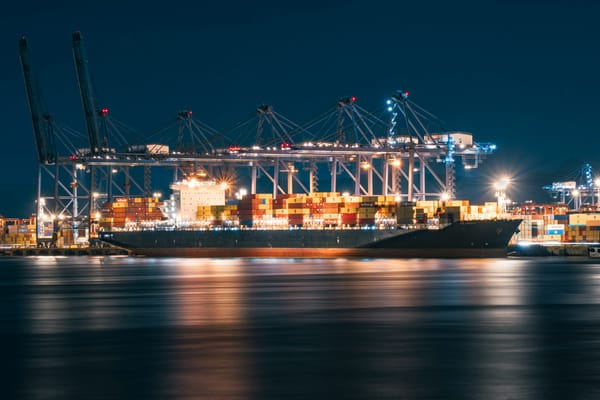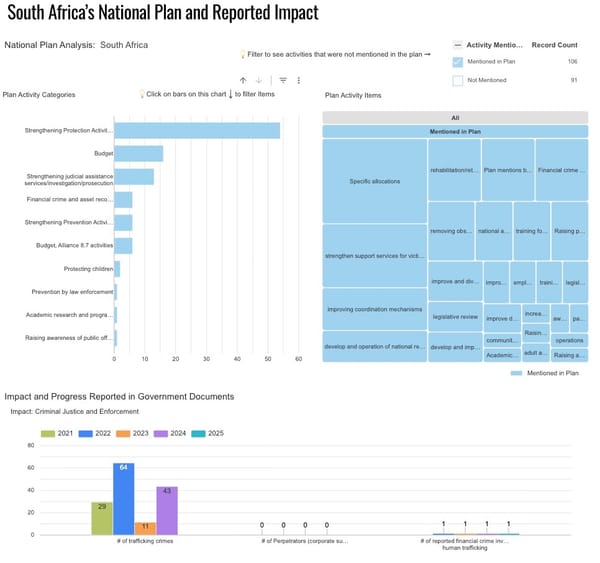OSCE leaders call for concerted action to address child trafficking
The OSCE’s anti-trafficking conference highlights the specific vulnerabilities of children, Sweden reaffirms its support for IOM efforts in Africa, and UK charities urge the government to enhance support for modern slavery victims.

Anti-trafficking experts and leaders from the Organization for Security and Co-operation in Europe (OSCE) have urged participating states to triple down on efforts in the fight against child trafficking. Speakers at the 25th Conference of the Alliance against Trafficking in Persons, which took place last week in Vienna, noted that, despite significant progress, “far too many children continue to be trafficked, abused, and denied their fundamental rights”.
This year marks 20 years since the 2005 Addendum to the OSCE Action Plan on Combating Trafficking in Human Beings, which called for the development of national co-ordination and referral mechanisms to address child trafficking. However, despite notable efforts, the number of cases detected across the OSCE region remains high and, over the past 15 years, the number of victims identified globally has tripled, with online child sexual exploitation escalating at an alarming rate.
Representatives of national authorities, international organizations, civil society and the private sector discussed developments and patterns in child trafficking and the importance of identifying risks and solutions within the scope of children’s specific vulnerabilities. Potential solutions include identification and prevention systems that utilize cross-border cooperation; targeted training for professionals and public awareness campaigns; and a coordinated multi-stakeholder response across law enforcement, social services, and non-governmental organizations (NGOs). Young people must be at the center of the response, speakers said, emphasizing that education, awareness, and digital literacy programs are necessary to equip children and youth with the tools they need to recognize risks and protect themselves.
Key issues highlighted included the production of child sexual abuse material as a result of online grooming, which should be recognized as a form of trafficking due to the organized nature of perpetrator communities and the severe harm it causes victims, experts said. However, regulation of the online space remains a huge challenge, because child safety often does not become a priority until a crisis forces action, leaving authorities caught between security concerns and privacy debates. It was further noted that, when children are separated from their families, they become significantly more vulnerable, especially if they lack access to education and stable support systems.
Another major concern is orphanage trafficking, in which children are deliberately recruited or transferred from their families – often on false pretenses or deceptive promises – into residential institutions to attract donations, volunteers, and other forms of financial support. Once in the orphanage, children may be exploited in various ways, including forced participation in orphanage tourism, sexual exploitation, forced labour, and slavery-like practices. The OSCE has called on countries to ensure that foreign aid does not inadvertently fuel orphanage trafficking and instead strengthens family-based alternatives to institutional care and eliminates exploitative practices.
Meanwhile, a side event highlighted the link between child and forced marriage and human trafficking, which often serves as both a form of and pathway to exploitation. To address this issue, the ASEAN Commission on the Promotion and Protection of the Rights of Women and Children (ACWC), supported by the ASEAN–Australia Counter Trafficking program (ASEAN-ACT), is leading the development of a regional guideline to prevent child and forced marriage in the context of trafficking in persons, aiming to provide a comprehensive framework by aligning national and regional efforts with international human rights standards, and by promoting partnerships between government and NGOs.
The urgent need for resources amid recent funding cuts was underlined by a representative from U.S.-based Winrock International, who described the impact of the termination of USAID-funded counter-trafficking programs and the U.S. Department of Labor’s decision to stop all international programs addressing child labour and trafficking, just as many European funders have also drastically reduced their levels of international assistance. These cuts have already resulted in stoppages of vital survivor assistance, she said, including emergency support and shelters, the defunding of critical hotlines, and disruption of legal aid and representation in criminal trafficking cases, as well as community resilience initiatives. This includes the defunding of Freedom Collaborative, as well as 15 projects by La Strada International members in the Balkans and the UK.
“All of this dismantles the vital infrastructure and undermines the hard-won progress we have collectively achieved in the past 25 years, leaves victims with nowhere to turn, and lets traffickers proliferate. Therefore, it is urgent for governmental, private and philanthropic actors to address the immediate gaps as well as re-envision what the leadership in combating trafficking will look like going forward.”
Here’s a round-up of other noteworthy news and initiatives:
Sweden has reaffirmed its support for the International Organization for Migration (IOM) and its efforts to address migration issues across the African continent during a four-day visit to Ethiopia by the State Secretary to the Minister for Migration. Discussions focused on migration management in sub-Saharan Africa and ways to enhance efforts in addressing the root causes of irregular migration, improving migration governance, and strengthening humanitarian responses along key migration corridors.
Hestia, The Salvation Army and 11 other organizations supporting survivors of modern slavery in the UK last week launched a manifesto to “put victims first”, calling on the government to rethink the UK's approach to supporting victims and improve their safety and wellbeing. The launch event, held in Parliament, was attended by lawmakers, survivors, and representatives from the modern slavery sector.
The final group of 78 Kenyans rescued from scamming compounds in Myanmar arrived in Nairobi on Saturday, following a repatriation mission led by the Kenyan Embassy in Thailand. While the returnees are expected to record statements with the Directorate of Criminal Investigations detailing how they were trafficked into Myanmar, some of the victims recounted their experiences to local media, including torture, beatings and electrocution for failing to meet unrealistic targets.
This analysis of labour migration from Vietnam to Germany examines the effectiveness of human trafficking prevention measures and the steps necessary to ensure that migration benefits all parties involved. While the dynamics of labour migration between Vietnam and Germany have emerged as a potential model for mutually beneficial international cooperation, complex challenges concerning the safety and wellbeing of vulnerable groups have also arisen.
Dozens of technology firms are continuing to put the lives and livelihoods of supply chain workers at risk by failing to meet even the most basic due diligence expectations around forced labour and human rights abuses, according to an analysis conducted by KnowTheChain, a Business & Human Rights Resource Centre project. Forced labour and modern slavery are particularly prevalent in the mining of raw materials and the production of components that make up technology products.
The UN Office of the High Commissioner for Human Rights’ Committee on the Rights of the Child now seeks contributions from all interested stakeholders on the draft of the general comment on children’s right to access to justice and to an effective remedy. The deadline for inputs is 30 June 2025.




